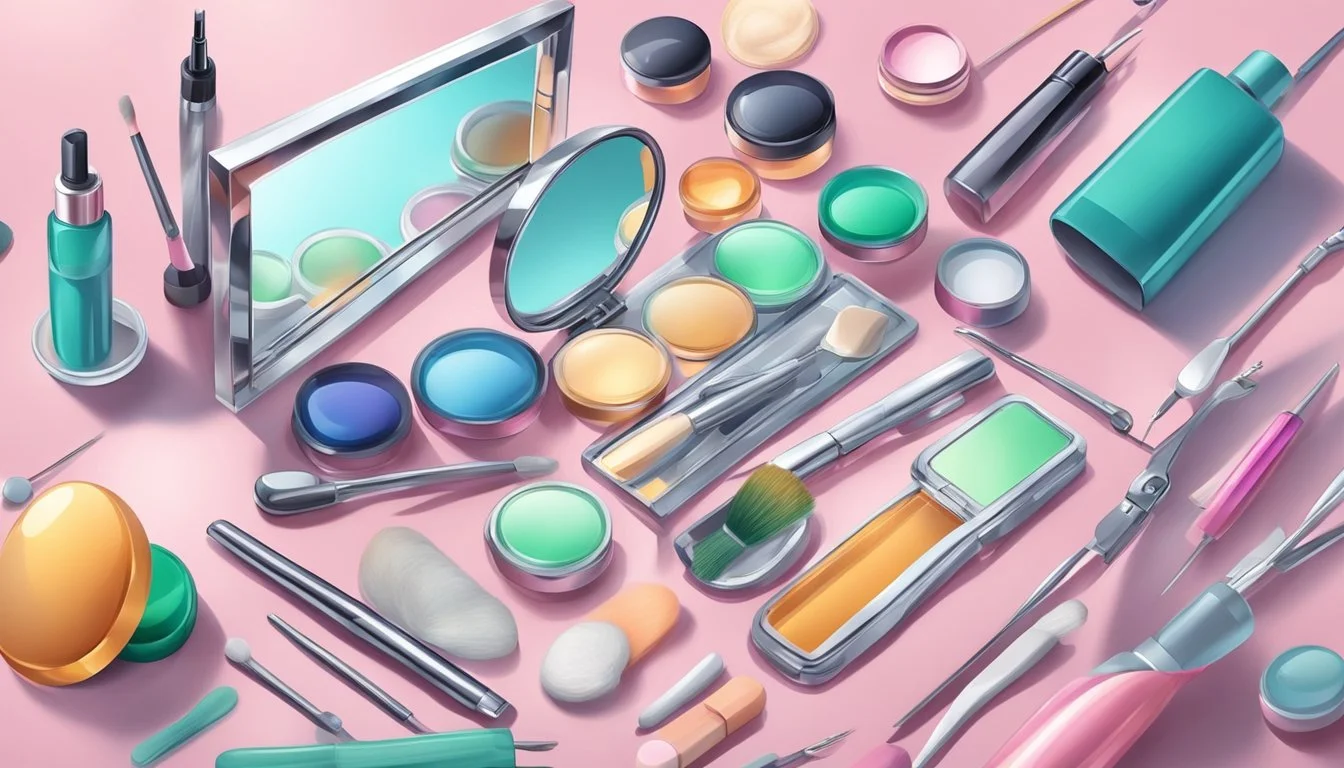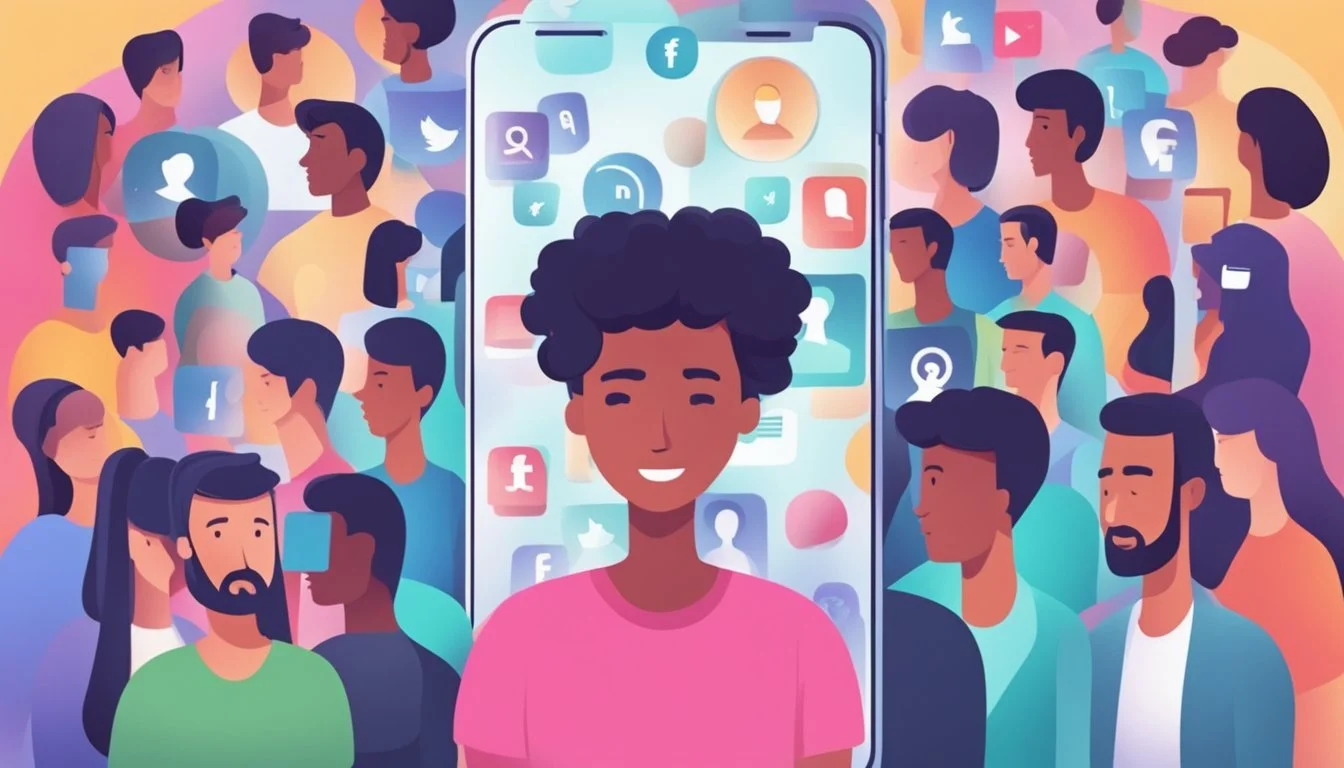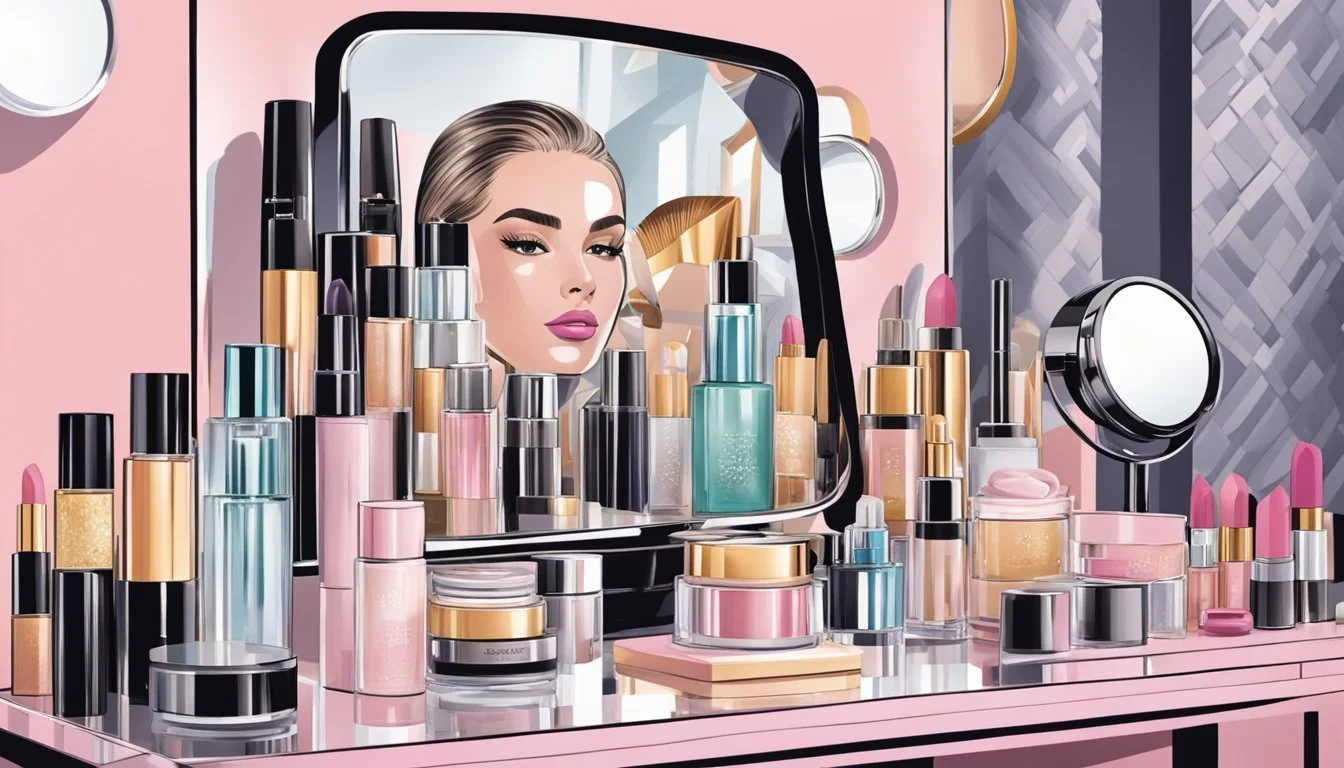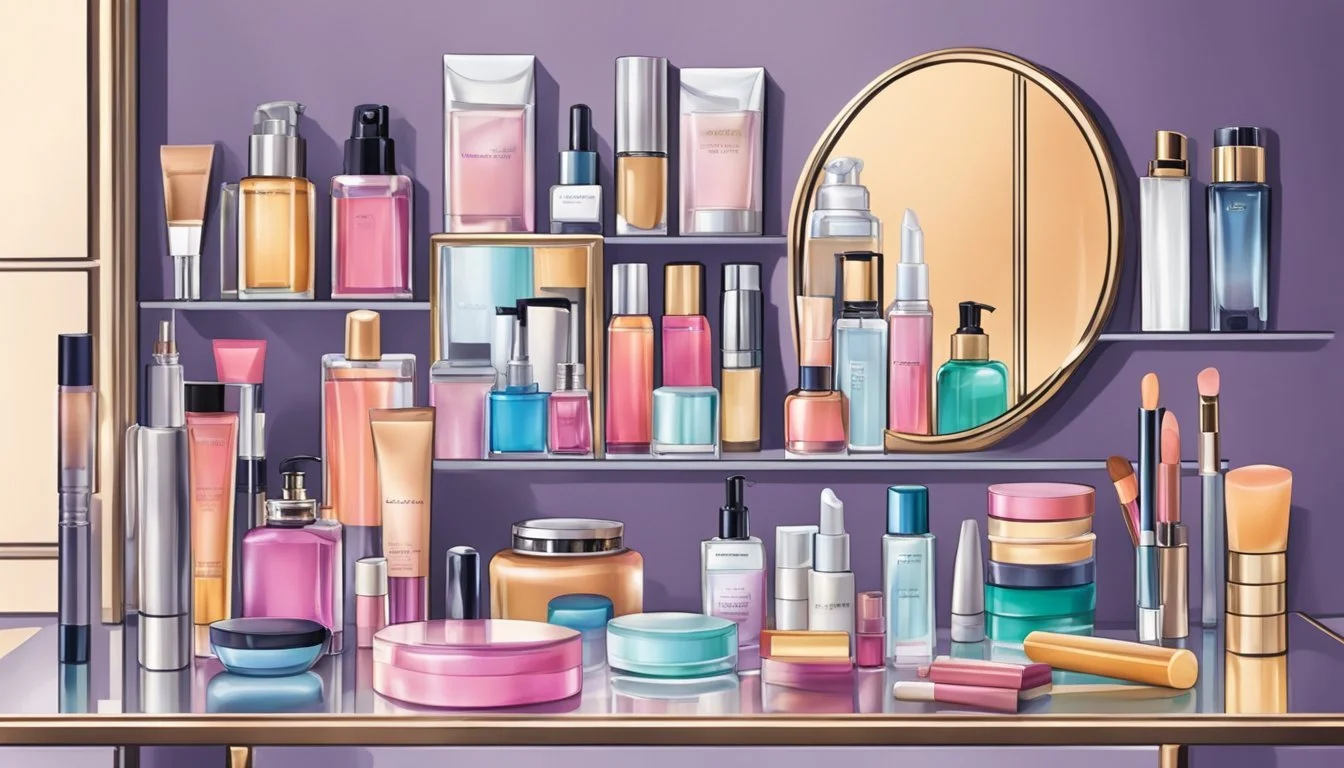9 Reasons Why Narcissists Often Pursue Extreme Makeovers or Plastic Surgery
Understanding Their Motivations
Plastic surgery and extreme makeovers have become increasingly popular in today's society, driven by the desire for physical perfection and societal standards. Among those who pursue these procedures, individuals exhibiting narcissistic traits often show a heightened interest. Narcissists are particularly drawn to cosmetic enhancements as a means to boost their self-image and garner admiration from others.
While plastic surgery can be a personal choice for many seeking self-improvement, the motivations behind it can differ greatly. Understanding why narcissists opt for these transformations can shed light on deeper psychological drives and societal influences that sustain this trend.
1) Self-Image Improvement
Narcissists often pursue extreme makeovers or plastic surgery to enhance their self-image. They are typically preoccupied with their appearance, striving to match an idealized version of themselves.
This intense focus on their physical looks leads them to seek out procedures that promise to improve their attractiveness.
They may feel that their outward appearance is a key element of their personal worth. By undergoing plastic surgery, they can align their self-perception with societal standards of beauty. This helps them maintain a sense of superiority over others.
Additionally, positive feedback from others about their enhanced looks can reinforce their self-esteem. Visible changes achieved through surgery can serve as tangible proof of their desired image, giving them a sense of accomplishment.
Narcissists also use extreme makeovers to project an image of perfection to the outside world. By presenting a faultless exterior, they aim to mask any perceived flaws or insecurities. This curated image helps them craft a persona that is admired and envied by others.
In a society that often values physical beauty, narcissists see plastic surgery as a vital tool for self-image enhancement. This pursuit allows them to align their external appearance with their internal self-concept, reinforcing their sense of identity and worth.
2) Validation-Seeking Behavior
Many narcissists pursue extreme makeovers or plastic surgery as a way to seek validation from others. This behavior stems from a deep need for approval and admiration, often to compensate for feelings of inadequacy.
Narcissists often equate their self-worth with external appearance. Enhancing their looks through surgery or makeovers can be a way to receive the admiration they crave.
The desire for validation can be linked to how narcissists perceive themselves in comparison to others. By improving their appearance, they believe they can gain more positive attention.
Seeking validation through appearance changes indicates a focus on superficial qualities. This can lead to a cycle where the narcissist constantly feels the need for more enhancements to maintain their desired level of approval.
The attention trap of needing validation from others can drive narcissists to extreme lengths. They may continuously seek new procedures to keep receiving admiration.
This behavior is different from healthy self-esteem, which relies on internal validation. Narcissists, however, depend heavily on external sources for their sense of self-worth.
Plastic surgery and makeovers become tools for seeking this external validation, highlighting the ongoing struggle narcissists face with their self-image and need for approval.
3) Influence of Social Media
Social media platforms play a significant role in shaping perceptions of beauty and vanity. Individuals frequently encounter images of idealized beauty standards, which can influence their self-esteem and body image.
Narcissists often seek external validation and admiration. Social media provides an avenue for them to showcase their appearance and receive immediate feedback through likes and comments.
The ease of sharing and comparing selfies amplifies the desire for a polished appearance. As a result, narcissists may be more inclined to pursue cosmetic enhancements to maintain an enviable online persona.
Research indicates that narcissistic traits are associated with increased social media activity. This increased exposure to idealized images can exacerbate feelings of inadequacy, driving the pursuit of extreme makeovers.
The digital environment encourages constant comparison, which can be detrimental to one's self-perception. Narcissists, already preoccupied with their appearance, might feel compelled to undergo plastic surgery to keep up with perceived societal standards.
In addition, social media can create a cycle where enhanced appearances are repeatedly rewarded with positive attention. This cycle further motivates individuals with narcissistic tendencies to seek out cosmetic procedures.
4) Desire for Youthfulness
Narcissists often pursue extreme makeovers or plastic surgery to maintain a youthful appearance. This desire to look young is tied to their self-image and need for admiration.
Youthfulness is commonly associated with vitality and attractiveness. Narcissists believe that looking young enhances their social status and helps them garner positive attention from others.
As they age, the fear of losing their youthful appeal can become overwhelming for narcissists. This fear drives them to seek cosmetic procedures that promise to reverse signs of aging.
Keeping up a youthful appearance also allows narcissists to feel superior to their peers. They may compare themselves to others who show more visible signs of aging and gain satisfaction from their perceived advantage.
Extreme makeovers provide an avenue for narcissists to control how they are perceived. By manipulating their appearance, they try to ensure that others see them as energetic, fresh, and desirable.
Narcissists focus on external validation, and looking youthful can be crucial for receiving admiration and compliments. This validation reinforces their self-worth and feeds their need for constant approval.
By undergoing plastic surgery, they aim to create an image that aligns with their ideal self. This image is carefully curated to meet societal standards of beauty and youthfulness, which they internalize deeply.
5) Attention-Seeking Traits
Narcissists often exhibit a strong need for admiration and attention from others. This desire for attention can drive them to extreme measures, including seeking out makeovers or plastic surgery.
One common trait is a sense of entitlement to special treatment. This sense of entitlement often leads to placing a high importance on physical appearance.
Narcissists may also display exploitative behavior, using others to achieve their desired level of admiration and recognition. They can be quick to seek validation through visible changes to their appearance.
Another trait is a lack of empathy. They may not consider the feelings or needs of others when making decisions about their appearance, focusing solely on their own desire for attention.
Engaging in attention-seeking behaviors can often be a sign of underlying feelings of low self-esteem. The extreme self-focus of narcissists can lead them to seek attention through visible and dramatic changes to their looks.
If a narcissist feels they are not receiving enough admiration, they may go to great lengths to manipulate their appearance, believing it will garner the validation they crave. This obsession with attention can heavily influence their decisions regarding personal aesthetics.
6) Comparison to Others
Narcissists often scrutinize themselves in comparison to others. This constant evaluation drives their pursuit of physical perfection through extreme makeovers or plastic surgery.
They may feel the need to match or surpass the appearance of peers, celebrities, or societal ideals. This need can stem from an underlying insecurity masked by outward displays of confidence.
When they perceive others to be more attractive, it can create feelings of inadequacy. This inadequacy fuels their desire for procedures that enhance their looks.
Social media also plays a role. Narcissists are frequently exposed to curated images of beauty online, which can serve as benchmarks for their own image.
Narcissistic individuals might seek validation through admiration from others. Enhanced looks provide a means to receive constant positive feedback, fulfilling their need for attention.
Competitiveness can also be a factor. They may believe that physical appeal directly correlates with success and social power. By improving their appearance, they aim to gain a competitive edge.
The comparison-driven mindset keeps them striving for perfection, often leading to multiple or excessive cosmetic procedures. This pursuit for an ideal image is relentless and deeply ingrained in their behavior.
For more insights into narcissistic behaviors, visit 13 Common Behaviors and Values of Narcissistic People.
7) Coping with Insecurity
Narcissists often struggle with self-esteem and feelings of inadequacy. This leads them to constantly seek validation from others. Extreme makeovers and plastic surgery become tools to project confidence and attractiveness.
Insecurity can manifest as fear of rejection. This makes narcissists more likely to invest in their appearance to garner social acceptance and admiration.
They also experience a persistent sense of emptiness. Cosmetic procedures provide a temporary boost to their self-worth, filling the emotional void they often feel.
Additionally, narcissists may view others negatively, assuming they are being judged. To combat this, they aim to enhance their physical appearance, hoping to shield themselves from perceived negative evaluations.
For vulnerable narcissists, who typically feel insecure and dissatisfied, pursuing physical changes is a coping mechanism. It helps them momentarily mask their dissatisfaction and boost their perceived self-worth.
The constant comparison to others, fueled by social media, exacerbates their insecurities. Enhancing their appearance becomes a way to compete and feel superior.
These actions reflect deep-seated issues rather than superficial desires. The quest for physical perfection is an external effort to manage internal turmoil and feelings of inferiority.
8) Need for Admiration
Narcissists have an intense need for admiration. This is a core component of their behavior and drives many of their decisions, including their pursuit of extreme makeovers or plastic surgery.
Their self-esteem hinges on external validation. Enhancing their appearance is one way they seek to garner admiration from others.
A narcissist's desire for admiration can often translate into a craving for constant attention. This attention can come in many forms, including compliments on their physical appearance.
Many narcissists believe that improving their looks can help them charm others. This belief reinforces their tendency to seek out cosmetic procedures.
Public perception is crucial for narcissists. They want to be seen as special and talented, and physical enhancements can play a role in shaping this perception.
Extreme makeovers or plastic surgery can also be a way for narcissists to stand out. By doing so, they hope to solidify their status as individuals who deserve admiration.
The pursuit of admiration is deeply tied to their sense of identity. For narcissists, looking their best can feel synonymous with being the best, reinforcing their need for external praise.
Finally, it's not just about feeling admired but also about being perceived as virtuous or generous. Through public praise, they aim to create an image that masks their true nature behind closed doors.
9) Impact of Celebrity Culture
Celebrity culture plays a significant role in influencing individuals' decisions to pursue extreme makeovers or plastic surgery. The public often views celebrities as trendsetters and aspires to emulate their looks. Media coverage of celebrity transformations sets aesthetic standards that many people strive to achieve.
Celebrities often exhibit traits associated with narcissism, such as grandiosity and excessive attention-seeking. These qualities can make their physical appearances seem crucial to their identity and success. Consequently, their decision to undergo cosmetic procedures can influence fans to do the same.
Shows and articles highlighting celebrity makeovers amplify this effect. Programs like "Extreme Makeover" and articles in popular magazines showcase dramatic transformations, reinforcing the idea that cosmetic surgery can lead to personal and social benefits. This media portrayal can heighten the desire for similar changes among the general public.
The portrayal of celebrities undergoing surgery often omits the risks and complications associated with such procedures. This selective representation can create unrealistic expectations about the outcomes and safety of plastic surgery. Fans, therefore, might be more inclined to pursue these procedures without fully understanding the potential downsides.
Moreover, the constant visibility of celebrities who have undergone successful makeovers can normalize these procedures. As a result, people may perceive plastic surgery as a viable option for achieving their desired appearance. This normalization, driven by celebrity culture, significantly impacts public attitudes towards cosmetic enhancements.
Psychological Motivations Behind Extreme Makeovers
Narcissists often undergo extreme makeovers due to a desire for control and perfection and stemming from low self-esteem and insecurity. Both these factors play crucial roles in their need to modify their appearance drastically.
Desire for Control and Perfection
The pursuit of control and perfection can drive a narcissist towards extreme makeovers. Narcissists often equate their self-worth with their physical appearance.
By controlling and perfecting their looks, they believe they can command more admiration and respect from others.
A narcissist's need for attention reinforces this behavior. Their vanity and preoccupation with outward appearances push them to invest heavily in procedures that they think will help them achieve societal standards of beauty and excellence.
They view plastic surgery as a means to project an idealized version of themselves.
Low Self-Esteem and Insecurity
Low self-esteem and deep-seated insecurities also lead narcissists to extreme makeovers. Despite their outward bravado, many narcissists struggle with feelings of inadequacy.
These feelings can be masked by an obsession with their appearance.
The thrill of the chase in relationships, for instance, can stem from a need to compensate for inner turmoil by appearing more attractive and desirable. They often rush into relationships, seeking immediate validation and admiration, as described in The Love Mirage.
By undergoing plastic surgery, they look to silence their inner critic and gain superficial confidence that they believe will make them feel better about themselves.
Societal and Cultural Influences
Extreme makeovers or plastic surgery among narcissists are often driven by societal pressures and cultural benchmarks. Media and social platforms propagate unrealistic beauty ideals, while celebrity culture celebrates aesthetic perfection.
Media Portrayal of Beauty Standards
Media outlets frequently set unattainable beauty standards. Magazines, television shows, and films often depict a narrow definition of attractiveness, heavily edited to remove imperfections.
This repeated exposure can lead to a misconception of natural beauty, driving individuals, particularly narcissists, to chase these flawless looks. They may see these standards as benchmarks for their success and self-worth.
Advertising also plays a significant role. Promoting beauty products and procedures, ads suggest that physical appearance is crucial for happiness and acceptance. This constant bombardment encourages individuals to believe that surgical enhancement is a gateway to a better life.
Impact of Social Media and Celebrity Culture
Social media platforms like Instagram and TikTok amplify these pressures. They provide a space where edited images and videos are the norms, often creating a false sense of reality. Narcissists, who thrive on admiration, may be more inclined to undergo procedures to gain likes and followers.
Celebrity culture further exacerbates this issue. High-profile figures frequently undergo plastic surgery and makeovers, setting trends that their followers are eager to emulate. Narcissists are particularly susceptible to this influence, looking to celebrities as role models and viewing their beauty transformations as pathways to personal and social success.
This dynamic creates a perpetuating cycle where societal validation becomes intertwined with physical appearance, pushing narcissists toward cosmetic enhancements.
The Role of Narcissistic Personality Traits
Narcissistic traits significantly drive individuals to pursue extreme makeovers or plastic surgery. Key factors include a deep need for admiration and a lack of empathy and self-reflection.
Need for Admiration and Recognition
Narcissists often have an intense desire for admiration and recognition from others. This quest can lead them to seek extreme measures such as plastic surgery. By enhancing their physical appearance, they hope to garner more attention and validation. Physical improvements are often seen as a way to maintain or increase their social standing.
This need for admiration is rooted in a fragile self-esteem. Despite outward displays of confidence, many narcissists feel insecure about their worth. Cosmetic procedures become a tool to project an image of perfection. The admiration received post-surgery reinforces their self-worth, offering temporary relief from underlying insecurities.
Lack of Empathy and Self-Reflection
A lack of empathy is a hallmark of narcissistic personality disorder. This trait may drive individuals to pursue aesthetic enhancements without considering the emotional impact on themselves or others. They may overlook the potential psychological consequences of frequent procedures.
Additionally, narcissists often lack self-reflection. They may not fully comprehend the reasons behind their desire for multiple cosmetic surgeries. Without introspection, they are less likely to recognize unhealthy patterns in their behavior. This absence of self-awareness can perpetuate a cycle of continuous, and sometimes excessive, body modifications.










